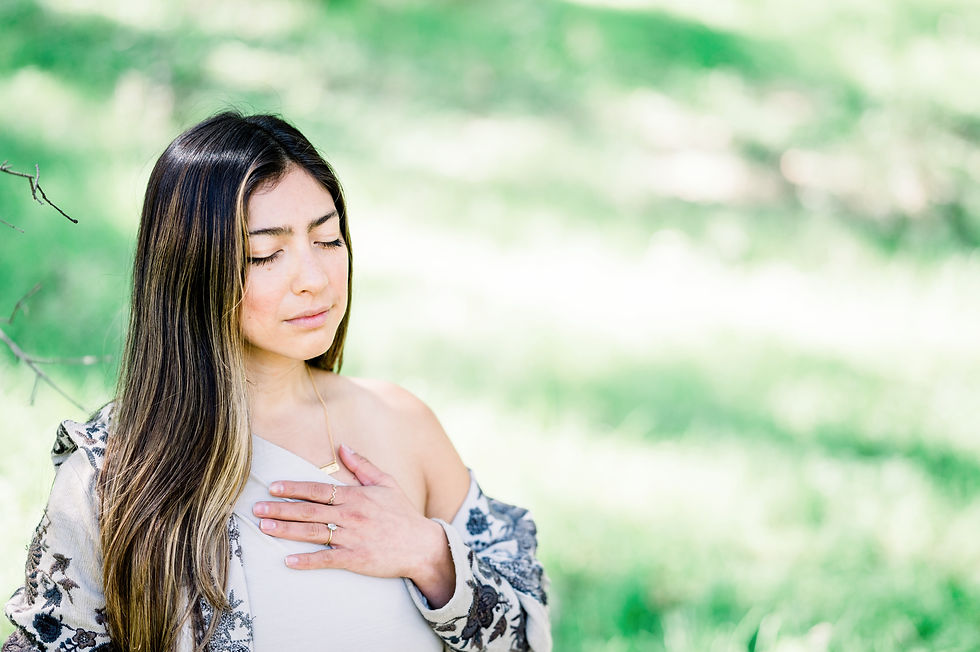3 top herbs for Women
- Lindsay Dalton

- Feb 14, 2023
- 3 min read
Updated: Mar 27, 2023

Herbs are such a wonderful way to nourish the body and support our overall health and wellbeing. There are so many to choose from but i’m narrowed it down to 3 of my favourites that are beneficial women at different stages of their life
1: Nettle
Probably the most under-rated herb yet such a valuable one for everyone but especially women. Stinging nettles are everywhere- nature is so wise and abundant.
Nettle or urtica dioica is a overall tonic and supports the kidneys.
Studies have shown it has antioxidant, antimicrobial, anti-ulcer, astringent and analgesic capabilities.
This herb is especially good for women of all stages of life; early menstruation age, the childbearing years, pregnant, lactating, and perimenopausal.
This can be a fantastic herb to support PMS symptoms, heavy periods, increase breastmilk, reduce water retention, prevent postpartum haemorrhage, prevent or treat nutritional aneamia, fatigue, prevent UTI, mood swings due to adrenal stress or blood sugar irregularity.
“Second to none, nettle is a pregnancy herb par excellence, supplying appreciable quantities of highly usable vitamins and minerals, promoting healthy kidney function, strengthening the blood vessels, reducing varicosities, and decreasing the likelihood of haemorrhaging at the time of birth." – Aviva Jill Romm
Some of the other conditions it can be helpful in treating are arthritis, osteoporosis, urinary issues, joint pain, hay fever, reduce bleeding and eczema.
Counter-intrications: Although completely natural herbs can be powerful and unfortunately we are still lacking in complete research in how herbs interact with certain medications, therefore if you are currently taking any medications please check with your prescribing practitioner. Additionally with nettle anyone with diabetes should check with their doctor as nettle has been shown to lower blood sugar levels and therefore may alter diabetes controlling medication.
How to take?
Tea
Topically (for skin conditions and wounds)
Infusions
Tinctures
Where to find?
Forage your own and dry. You’ll need to be sure to use gloves to avoid being stung, dry in a dehydrator (it’s a really satisfying process but also very time consuming as a full dehydrator only makes a few cups of dried herbs at best.)
If foraging- be sure to pick only from areas you know haven’t been sprayed with any pesticides or chemicals and do not pick when it is flowering. At the first sign of flowering stop picking as it's not safe for consumption then.
Always use gloves!
Or you can buy dried nettle here to make your own teas and infusions:
Personally I’m a big fan of infusions which essentially are long brewed teas, make sure you can get ‘some’ of the benefits from nettle tea (where possible choose loose tea) but to get the maximum benefits infusions are the way to go and simple to make.
2: Red Raspberry Leaf
The leaf of the raspberry plant, a uterine tonic which means it helps to tone and support the uterus. A wonderful herb for menstruating women and during pregnancy and postpartum. Online information often cautions during pregnancy stating it ‘can induce labour’ but that’s not how it works. It gently tones to support the uterus in doing its job so is beneficial to drink in the 3rd trimester but doesn’t make it unsafe earlier in pregnancy. I suggest starting it from the 2nd trimester and it also remains helpful post-partum.
Can be taken as infusion or tea, I like to mix it with peppermint or spearmint for a nicer flavour or sweeten with a little honey.
3: Oatstraw or Avena sativa
This feels like a herb that is often left out of the conversation. A nervine herb that helps support the nervous system to reduce feelings of anxiety and promote calm. Rich in calcium to help build strong bones, This gentle milky herb is high in vitamin E and especially helpful to increase vaginal lubrication helpful for those who are wanting to conceive and for perimenopause and post-menopausal women.
It also aids with cognition great for those experiencing brain fog, increases libido and helps with reducing menstrual cramps and premenstrual bloating.
So there you have it, 3 amazing herbs for women.
I’d love to know if you already use herbs and which are your favourites?
Did you find this helpful? Share with a friend - knowledge is power!





Comments